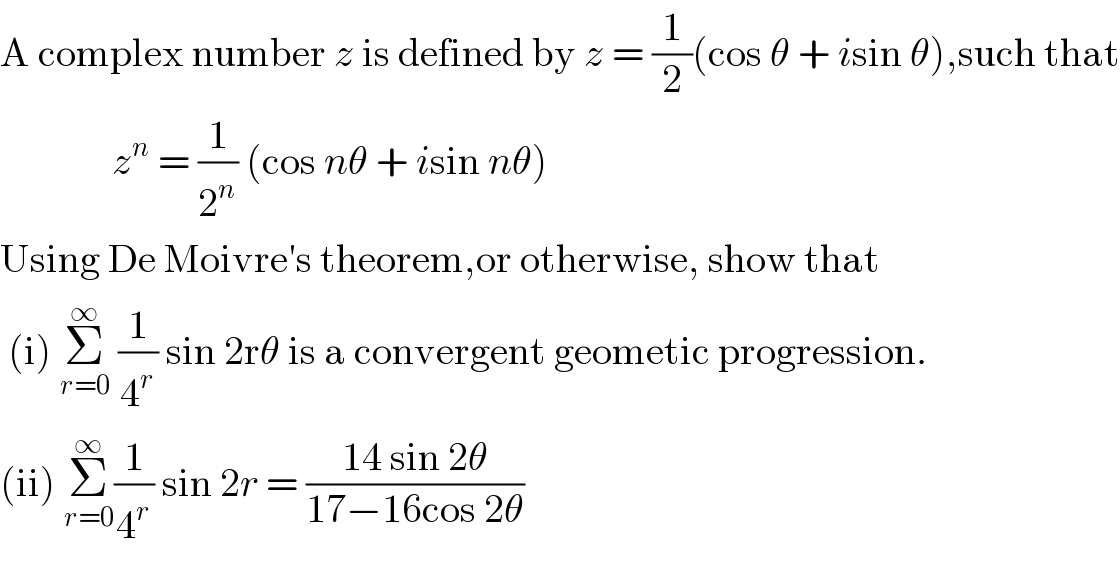Question Number 87497 by Rio Michael last updated on 04/Apr/20

$$\mathrm{A}\:\mathrm{complex}\:\mathrm{number}\:{z}\:\mathrm{is}\:\mathrm{defined}\:\mathrm{by}\:{z}\:=\:\frac{\mathrm{1}}{\mathrm{2}}\left(\mathrm{cos}\:\theta\:+\:{i}\mathrm{sin}\:\theta\right),\mathrm{such}\:\mathrm{that} \\ $$$$\:\:\:\:\:\:\:\:\:\:\:\:\:\:{z}^{{n}} \:=\:\frac{\mathrm{1}}{\mathrm{2}^{{n}} }\:\left(\mathrm{cos}\:{n}\theta\:+\:{i}\mathrm{sin}\:{n}\theta\right) \\ $$$$\mathrm{Using}\:\mathrm{De}\:\mathrm{Moivre}'\mathrm{s}\:\mathrm{theorem},\mathrm{or}\:\mathrm{otherwise},\:\mathrm{show}\:\mathrm{that}\: \\ $$$$\:\left(\mathrm{i}\right)\:\underset{{r}=\mathrm{0}} {\overset{\infty} {\sum}}\:\frac{\mathrm{1}}{\mathrm{4}^{{r}} }\:\mathrm{sin}\:\mathrm{2r}\theta\:\mathrm{is}\:\mathrm{a}\:\mathrm{convergent}\:\mathrm{geometic}\:\mathrm{progression}. \\ $$$$\left(\mathrm{ii}\right)\:\underset{{r}=\mathrm{0}} {\overset{\infty} {\sum}}\frac{\mathrm{1}}{\mathrm{4}^{{r}} }\:\mathrm{sin}\:\mathrm{2}{r}\:=\:\frac{\mathrm{14}\:\mathrm{sin}\:\mathrm{2}\theta}{\mathrm{17}−\mathrm{16cos}\:\mathrm{2}\theta} \\ $$
